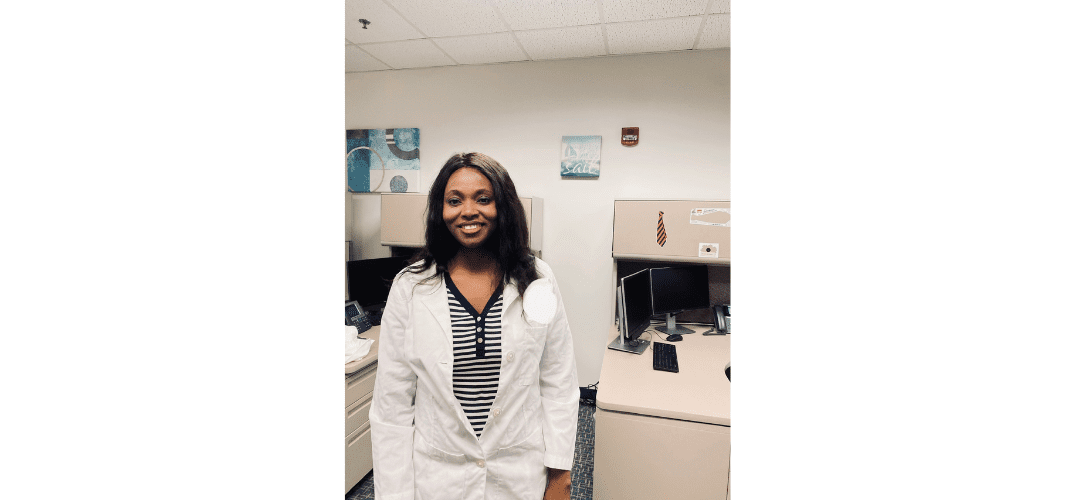In the intersection of health innovation and African leadership, Rachael O. Ajiboye is quietly building something global. And it starts with pain — the kind that lingers in the bones, throbs behind the eyes, and follows you from sickle cell crises to hypertensive spikes.
Rachael O. Ajiboye, a Nigerian-born nurse scientist and current PhD candidate at the University of Florida, is helping reshape how we understand and manage chronic pain in low-resource populations. But her secret weapon isn’t just scientific rigor — it’s the power of frameworks rooted in cultural reality.
In a world obsessed with tech that “disrupts,” Ajiboye is doing something different. She’s building a bridge between clinical data and human experience, especially for patients living with dual diagnoses of sickle cell disease and high blood pressure — a combination affecting millions across Africa and the diaspora.
Her integrated pain management framework, first piloted in Nigeria, does what algorithms and imported guidelines often miss: it listens. It captures the cyclical, invisible nature of chronic pain and translates it into actionable care plans nurses and patients can actually use. It’s a toolkit, not just a theory.
This is the kind of innovation that matters. Why? Because sickle cell disease is one of the most prevalent genetic disorders globally. Hypertension is a silent killer on the rise in sub-Saharan Africa. Yet, global pain management protocols still tend to ignore the intersection of these conditions in African contexts.
Ajiboye’s model answers that gap. It helps patients anticipate pain, classify it, and take early action — reducing ER visits, hospital readmissions, and reliance on opioids. It’s low-tech, scalable, and grounded in years of experience as a nurse educator and health regulator in Nigeria.
Before joining the University of Florida, Ajiboye served as an Examiner with the Nursing and Midwifery Council of Nigeria, overseeing national licensure examinations that determine who gets to practice as a nurse in one of the world’s largest healthcare talent pipelines. From Lagos to Ibadan, from the classroom to the clinic, she has worked at every level of the system.
Now at UF, she’s contributing to NIH-funded studies on pain phenotypes and quality of life in sickle cell disease, under the mentorship of global leaders like Dr. Diana Wilkie. Her work has been accepted at top conferences including the American Society of Hematology (ASH) and the Southern Nursing Research Society (SNRS).
But beyond research, Ajiboye is part of a growing class of African women in science who are challenging Western-centric models of health innovation. She’s proof that the future of healthcare doesn’t lie solely in Silicon Valley, but also in Ibadan, Osogbo, and Gainesville.
In 2025, she received the Oscar Award for Outstanding Whole Health Research from the Sickle Cell Disease Pain Analgesia and Integrative Network (SCDPAIN). She’s also a reviewer for international journals, a mentor to young nurses, and a public health educator who once led a radio show called “You and Your Health” in Osun State.
So what’s next for Rachael Ajiboye? She’s continuing her PhD, expanding her research, and quietly architecting what may become the global standard for pain management in overlapping disease populations. In a healthcare world that desperately needs local solutions with global reach, Ajiboye is more than a researcher — she’s a systems thinker, a connector, and a catalyst for ethical, inclusive innovation.
The big tech players may dominate headlines. But the future of global health? It might just belong to nurse scientists like her.
Want to feature Rachael Ajiboye or collaborate on health innovation across continents? Email: rachaelajiboye@ufl.edu



































